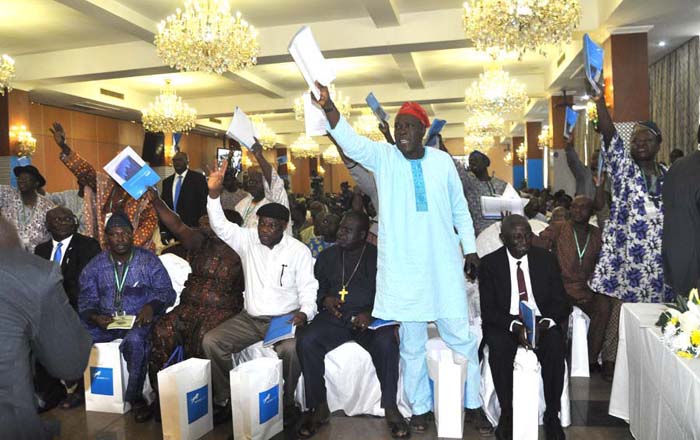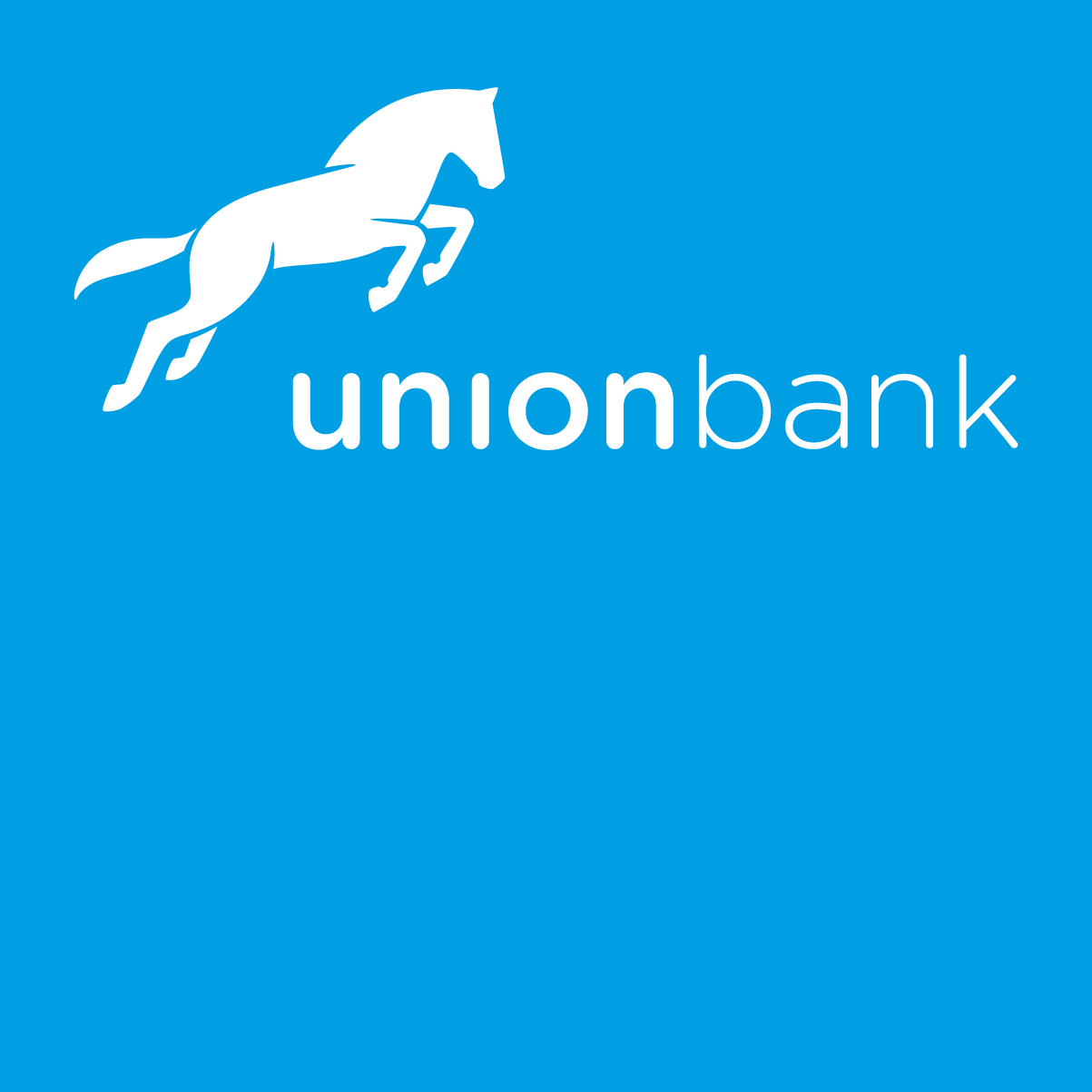Economy
Discordant Tunes over Union Bank N50b Rights Issue


By Daily Times
A new report by Daily Times Nigeria has revealed that failure by Union Bank of Nigeria (UBN) to launch a N50 billion Rights Issue in the second quarter of 2017 as it promised at its 48th Annual General Meeting (AGM) held in Lagos is due to the lack of local investor’s confidence, mistrust and decline of 20 percent free float of public share to 14.11 percent.
It is, however, worthy of note that free float is commonly known as the percentage shares of a company on the exchange held by the public for trading activities.
In a petition, which was addressed to the Senate President, Federal Republic of Nigeria, National Assembly, exclusively obtained by The Daily Times, tagged, ‘Investor’s Confidence in the Capital Market: Issue of Public Float Shares Flagrant Abuse’, stated, “We, concerned shareholders’ group deem it duty bound to brief you on latest development, that may further erode investor’s confidence in our capital market. This calls for urgent action to prevent calamity, as it is now, the current situation may eventually kill the market confidence, if not addressed drastically, soonest.”
The document was signed by the President, Renaissance Shareholders Association of Nigeria (RSAN), Mr Olufemi Timothy and the Secretary, Mr Ralph Ogedengbe, noting that investor’s confidence remains the fatal oxygen that the capital market thrives on, and if not protected and duly safeguarded, the market may die abruptly.
According to the petition, based on all these aforementioned, “We hereby seek your Excellencies’ urgent attention and action on the issue of abuse of public (free) float of shares on the Nigerian Stock Exchange (NSE).”
The local investors, in the note explained that investor’s confidence could only be sustained if the market regulators; NSE, the Securities and Exchange Commission (SEC), are very strict about its rules on disclosures and transparency. One of such rules that seem to be carelessly or not strictly enforced was the free float post-listing rule.
“On the NSE, we have observed that the compliance on the free float shares rules are treated with levity instead of ensuring strict compliance by companies, the authorities of the exchange look the other way, thus allowing this critical post-listing rule be flouted at the expense of investors. The issue of public float (Free Float) remains a potential threat to our market ability to grow and develop and investors’ confidence.
“It is obvious that an exchange that treats free float with levity, less strictness, may soon suffer, lose investors’ respect and confidence, as you will agree with us that low public float of shares on any market. creates room for manipulations, which also negatively alters the ability to buy and or sell such company’s shares (with low public float)”, it stated.
It therefore, notes that The NSE has a post-listing rule of 20 per cent free float of shares for companies on the exchange (Mandatory). “But to our chagrin and dismay, many companies have persistently violated this rule without any restriction from the exchange authorities which now serves as basis for others to follow.”
According to the petition, “the investing public remains in darkness, with fears of losing their investment, as to the reasons they permit this abuse and latest development on what the exchange was doing on this act to protect the market and investors (being aware of the danger) and why this trend has continued unabated.”
While speaking in an exclusive telephone chat with our correspondent over the weekend, Olufemi Timothy said, he is one of the people who objected to the Union Bank’s right issue since last year, because it is wrong to come for right issue at a point that so many people are at disadvantage.
In his words: “We minority shareholders are at disadvantage, because when local investors are in a recession economy, how can you say you want to do right issue? When you know that the other party will not be able to subscribe, and you want to bring your own money from foreign countries, which is cheaper now. If you bring dollar from abroad now, you can buy the whole of Nigeria, and you know there is a core investor who is a foreigner an American in Union Bank.”
He said further that the core investors have insisted that they are bringing dollar to come and buy their own right, and this is coming at a time that they know Nigeria is in recession.
He said, “No way, Nigeria minority cannot buy. I said they only want to explore the situation and buy out the minority, because this is not the appropriate time to do right issue and if you know you have that kind of money, find a way of giving it into the bank without touching the equity, equity investment is not encouraging in the present Nigeria, because the country is in recession.
“I think by now, they are also having problem in bringing the dollar; and they cannot come out and our own association has always been advocating that no foreign national, who is a major investor, should come for right issue by now, because at the end of the right issue, free float of shares would be abused.
“There is no way they will not buy more than 80 percent, on the basis, regulators should regulate well, if they are patriotic. they should not approved any right issue that abused public float of 20 percent. So, if any foreign investor wants to increase his stake, it should not be more than 80 per cent in the company.”
He said, “So, most of the foreign investors have become lawless; they know there is a law in Nigeria that says 20 percent must be free float, and the highest share you can hold is 80 percent. I don’t know what is wrong with the Union Bank that it cannot come out for it so-called right issue that is so arrogant about, even though it is good for minority investors.
“I think, Union Bank are burning their fingers now, because they cannot do right issue by now, if you have that money, you should assist the company, after all, you are the management, the chairman of the board. They must understand that there is a law in this country that says there is 20 per cent free float of shares, which every foreign investor must obey.”
According to him, “With just 14.11 percent free float of shares as against the 20 percent threshold, simply means that Union Bank is already abusing the law and still want to do right issue and the regulators are not doing anything about it”, he lamented.
But on a contrary view, National Chairman, Progressive Shareholders Association of Nigeria (PSAN), Mr Boniface Okezie, told our correspondent at the weekend that after the right issue was approved by the shareholders at the bank’s last AGM, which was held barely two months ago, that the lender would still have to do some compilation and filling with SEC.
He defended the bank that may be SEC has not make the approval and that the lender is still on track, adding that it is not yet too late because the second quarter has not been exhausted.
“I belief anytime they finished with the arrangement they will come onboard, because to do a right issue of N50 billion is not easy and a lot of underground work has to be perfected”, he explained.
Responding to question on the likelihood of local investors buying into the right issue if eventually goes life, Mr Okezie, said, “The most important thing is to prepare the minds of foreign investors, who are currently the majority shareholders. Nigerians must not be left out because, they are already short-changed, because of the structure of the shares Funke Osibodu (former CEO of UBN) bided that time, given the majority to the so called investors.”
He said, “So, for Nigerians to get themselves back in the system, they have to take their rights. Failure to do so, they are given the chances for the foreign investors to mop up; and that is why it is very important for Nigerians, who are investors in the bank, to take up their rights when it is open.”
While commenting on the likelihood of the majority shareholder getting more than the regulated 80 per cent shareholding, he said, “I think, they would have that at the back of their minds that they cannot have more than 80 per cent as the core investors, because there is a regulated 20 per cent free float of share, so as to prevent from being de-listed from stock exchange.
“I don’t think Union bank wants to be delisted from stock exchange; they know their limits because Nigeria investors would not be happy, and that is why Nigerian shareholders need to be repositioned and take their shares back.”
Reacting on the delayed right issue, Head, Corporate Affairs & Corporate Communication, UBN, Ogochukwu Sylvia Ekezie, told our correspondent on the telephone at the weekend that, everything was on course.
According to her, “We are now going through the regulatory approval; and everything is with the SEC, and once the approval comes through, it will go ahead as planned.”
She said that there is an application process to the right issue; and that the bank is going through the process now, assuring that aside the approval process there is no issue.
But when pressed to comment on the bank’s current 14.11 percent free float of share as against the 20 percent required by the NSE, she said: “I’m not in position to answer that question; that is a question somebody else is in a better position to answer.
“So, if you can send me an e-mail or get back to me on Monday, but know that whatever it is that we are doing the regulators are very much aware, NSE, SEC and all the regulators are involved. We would be in compliance with whatever the regulators expect.”
According to a financial expert, Mr Teslim Shittabey, postulated that companies planning right issues that have lesser free float shareholdings are likely to succeed, because the majority shareholders would easily pick their right issues, which bulk of the offer.
In Union Bank, Atlas Mara Limited and Union Global Partners Limited, own 85.89 percent of its total shares.
However, the Chief Financial Officer of the bank, Mrs Oyinkan Adewale explained in a video message posted on Youtube that the right issue would be used to fund the bank’s growth. “We would lend part of the fund to selected group sectors of the economy,” she said.
According to her, the bank’s lending process would be very strict, ensuring that it meets risk acceptable criteria.
Union Bank, which is planning to raise N50 billion, is battling higher Non-performing loan ratio, which stood at 7.65 percent in Q1 2017 and liquidity ratio which is just 7 per cent higher than the 30 per cent regulatory minimum.
Although the lender’s gross earnings grew 24 percent to N33.8 billion during this period, its PAT declined 4 per cent to N4.5 billion.
Source: Daily Times
Economy
Naira Down Again at NAFEX, Trades N1,359/$1

By Adedapo Adesanya
The Naira further weakened against the Dollar in the Nigerian Autonomous Foreign Exchange Market (NAFEX) for the fourth straight session this week on Thursday, February 26.
At the official market yesterday, the Nigerian Naira lost N3.71 or 0.27 per cent to trade at N1,359.82/$1 compared with the previous session’s N1,356.11/$1.
In the same vein, the local currency depreciated against the Pound Sterling in the same market window on Thursday by N8.27 to close at N1,843.23/£1 versus Wednesday’s closing price of N1,834.96/£1, and against the Euro, it crashed by N8.30 to quote at N1,606.89/€1, in contrast to the midweek’s closing price of N1,598.59/€1.
But at the GTBank forex desk, the exchange rate of the Naira to the Dollar remained unchanged at N1,367/$1, and also at the parallel market, it maintained stability at N1,365/$1.
The continuation of the decline of the Nigerian currency is attributed to a surge in foreign payments that have outpaced the available Dollars in the FX market.
In a move to address the ongoing shortfall at the official window, the Central Bank of Nigeria (CBN) intervened by selling $100 million to banks and dealers on Tuesday.
However, the FX support failed to reverse the trend, though analysts see no cause for alarm, given that the authority recently mopped up foreign currency to achieve balance and it is still within the expected trading range of N1,350 and N1,450/$1.
As for the cryptocurrency market, major tokens posted losses over the last 24 hours as traders continued to de-risk alongside equities following Nvidia’s earnings-driven pullback, with Ripple (XRP) down by 2.7 per cent to $1.40, and Dogecoin (DOGE) down by 1.6 per cent to $0.0098.
Further, Litecoin (LTC) declined by 1.3 per cent to $55.87, Ethereum (ETH) slipped by 0.9 per cent to $2,036.89, Bitcoin (BTC) tumbled by 0.7 per cent to $67,708.21, Cardano (ADA) slumped by 0.6 per cent to $0.2924, and Solana (SOL) depreciated by 0.4 per cent to $87.22, while Binance Coin (BNB) gained 0.4 per cent to sell for $629.95, with the US Dollar Tether (USDT) and the US Dollar Coin (USDC) closing flat at $1.00 each.
Economy
Crude Oil Falls as Geopolitical Risk Around Iran Clouds Supply Outlook

By Adedapo Adesanya
Crude oil settled lower on Thursday as investors tracked developments in talks between the United States and Iran over the latter’s nuclear programme, weighing potential supply concerns if hostilities escalate.
Brent crude futures lost 10 cents or 0.14 per cent to close at $70.75 a barrel, while the US West Texas Intermediate (WTI) crude futures depreciated by 21 cents or 0.32 per cent to $65.21 a barrel.
The US and Iran held indirect talks in Geneva on Thursday over their long-running nuclear dispute to avert a conflict after US President Donald Trump ordered a military build-up in the region.
Prices had gained earlier in the session after media reports indicated the talks had stalled over US insistence on zero enrichment of uranium by Iran, as well as a demand for the delivery of all 60 per cent-enriched uranium to the US.
However, prices then retreated after the two countries extended talks into next week, reducing the immediate strike potential.
Iran’s Foreign Minister, who confirmed talks will continue next week, said Thursday’s talks were the most serious exchanges with the US yet, saying Iran clearly laid out its demand for lifting sanctions and the process for relief.
His counterpart from Oman, who is handling the talks, said significant progress was made in Thursday’s talks. The Omani minister’s upbeat assessment followed indirect talks between Iranian Foreign Minister and US envoys Steve Witkoff and Jared Kushner in Geneva, with one session in the morning and the second in the afternoon.
He will also hold talks with US Vice President JD Vance and other US officials in Washington on Friday.
The Trump administration has insisted that Iran’s ballistic missile program and its support for armed groups in the region must be part of the negotiations.
The American President said on February 19 that Iran must make a deal in 10 to 15 days, warning that “really bad things” would otherwise happen.
On Tuesday, he briefly laid out his case for a possible attack on Iran in his State of the Union speech, underlining that while he preferred a diplomatic solution, he would not allow Iran to obtain a nuclear weapon.
Meanwhile, the US continues to amass forces in the Middle Eastern region, with the military saying it is prepared to execute orders given by the US President.
Economy
Why Transparency Matters in Your Choice of a Financial Broker

Choosing a Forex broker is essentially picking a partner to hold the wallet. In 2026, the market is flooded with flashy ads promising massive leverage and “zero fees,” but most of that is just noise. Real transparency is becoming a rare commodity. It isn’t just a corporate buzzword; it’s the only way a trader can be sure they aren’t playing against a stacked deck. If a broker’s operations are a black box, the trader is flying blind, which is a guaranteed way to blow an account.
The Scam of “Zero Commissions”
The first place transparency falls apart is in the pricing. Many brokers scream about “zero commissions” to get people through the door, but they aren’t running a charity. If they aren’t charging a flat fee, they are almost certainly hiding their profit in bloated spreads or “slippage.” A trader might hit buy at one price and get filled at a significantly worse one without any explanation. This acts as a silent tax on every trade. A transparent broker doesn’t hide the bill; they provide a live, auditable breakdown of costs so the trader can actually calculate their edge.
The Conflict of Market Making
It is vital to know who is on the other side of the screen. Many brokers act as “Market Makers,” which is a polite way of saying they win when the trader loses. This creates a massive conflict of interest. There is little incentive for a broker to provide fast execution if a client’s profit hurts their own bottom line. A broker with nothing to hide is open about using an ECN or STP model, simply passing orders to the big banks and taking a small, visible fee. If a broker refuses to disclose their execution model, they are likely betting against their own clients.
Regulation as a Safety Net
Transparency is worthless without an actual watchdog. A broker that values its reputation leads with its licenses from heavy-hitters like the FCA or ASIC. They don’t bury their regulatory status in the fine print or hide behind “offshore” jurisdictions with zero oversight. More importantly, they provide proof that client funds are kept in segregated accounts. This ensures that if the broker goes bust, the money doesn’t go to their creditors—it stays with the trader. Without this level of openness, capital is essentially unprotected.
The Withdrawal Litmus Test
The ultimate test of a broker’s transparency is how they handle the exit. There are countless horror stories of traders growing an account only to find that “technical errors” or vague “bonus terms” prevent them from withdrawing their money. A legitimate broker has clear, public rules for getting funds out and doesn’t hide behind a wall of unreturned emails. If a platform makes it difficult to see the exit strategy, it’s a sign that the front door should have stayed closed.
Conclusion
In 2026, honesty is the most valuable feature a broker can offer. It is the foundation that allows a trader to focus on the charts instead of worrying if their stops are being hunted. Finding a partner with clear pricing, honest execution, and real regulation is the first trade that has to be won. Flashy marketing is easy to find, but transparency is what actually keeps a trader in the game for the long haul.
-

 Feature/OPED6 years ago
Feature/OPED6 years agoDavos was Different this year
-
Travel/Tourism10 years ago
Lagos Seals Western Lodge Hotel In Ikorodu
-

 Showbiz3 years ago
Showbiz3 years agoEstranged Lover Releases Videos of Empress Njamah Bathing
-

 Banking8 years ago
Banking8 years agoSort Codes of GTBank Branches in Nigeria
-

 Economy3 years ago
Economy3 years agoSubsidy Removal: CNG at N130 Per Litre Cheaper Than Petrol—IPMAN
-

 Banking3 years ago
Banking3 years agoSort Codes of UBA Branches in Nigeria
-

 Banking3 years ago
Banking3 years agoFirst Bank Announces Planned Downtime
-

 Sports3 years ago
Sports3 years agoHighest Paid Nigerian Footballer – How Much Do Nigerian Footballers Earn



















